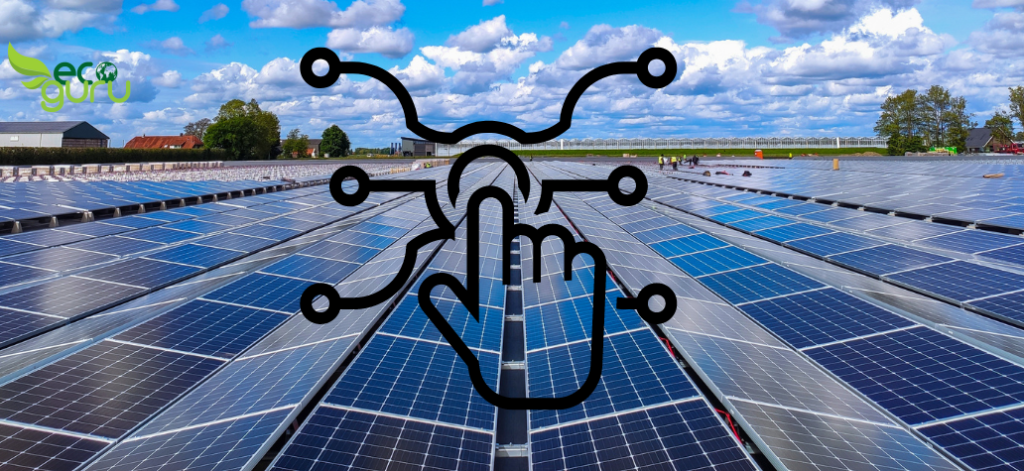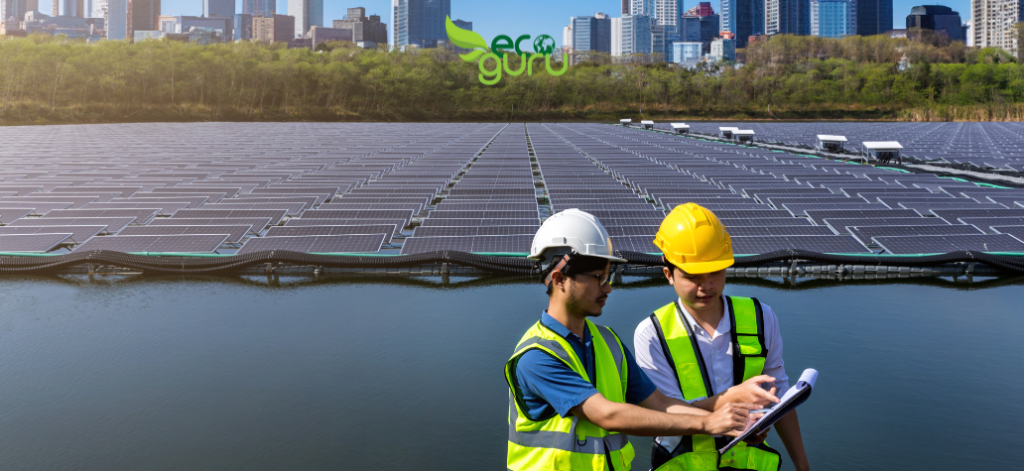Commercial Solar Power: Key Considerations and Benefits
With a growing interest in harnessing solar energy, businesses are now looking beyond traditional power sources and embracing the sun’s potential. In this blog post, we’ll delve into the key considerations and benefits of commercial solar power, shedding light on why this transition is essential for your business.
The Advantages of Commercial Solar Power
Commercial solar power offers a myriad of advantages, making it an attractive choice for businesses across India. Let’s explore some of the most compelling reasons why you should consider this eco-friendly and cost-effective energy solution:
1. Environmental Benefits of Solar Power
When your business goes solar, you take a giant stride toward reducing your carbon footprint. Solar energy systems generate electricity without emitting harmful greenhouse gases, making them an eco-conscious choice. By adopting solar power, you contribute to a cleaner environment, which is crucial in the fight against climate change.
2. Decrease Reliance on Fossil Fuels
Solar power reduces your dependence on finite fossil fuels, such as coal and natural gas. India’s energy sector has traditionally relied on these resources, but the shift towards renewables is on the rise. By incorporating solar energy into your business operations, you help decrease the demand for fossil fuels, contributing to India’s energy diversification efforts.
3. Financial Advantages
Commercial solar power offers substantial long-term cost savings. Although the initial investment may seem significant, the return on investment (ROI) is compelling. Over time, your solar system pays for itself through reduced electricity bills, and in some cases, you can even sell excess energy back to the grid.
4. Government Incentives and Subsidies
To encourage the adoption of solar power, the Indian government has introduced several incentives and subsidies. These financial benefits can significantly offset the upfront costs of solar installations. By taking advantage of government programs, your business can enjoy a more rapid ROI and increased savings.
5. Energy Independence
One of the most appealing aspects of commercial solar power is the reduced dependence on the grid. Traditional electricity sources are susceptible to fluctuations and disruptions, leading to downtime and losses for businesses. Solar power provides a reliable and consistent source of energy, ensuring uninterrupted operations even during power outages.
By generating your electricity, you gain greater control over your energy supply and costs. This energy independence allows your business to thrive, regardless of external energy challenges.
Key Considerations Before Going Solar

Before making the switch to commercial solar power, it’s crucial to thoroughly assess various factors to ensure a seamless transition and maximize the benefits. Let’s explore some key considerations that will pave the way for a successful solar journey:
1. Site Assessment Process
Location and Orientation: The first step in going solar involves a site assessment to determine the ideal location for your solar panels. Solar panels should ideally face south to capture maximum sunlight throughout the day. Proper orientation ensures optimal energy production.
Shading Analysis: Conducting a shading analysis is vital to identify any obstructions like trees or buildings that may cast shadows on your solar panels. Minimizing shading is essential for maximizing energy generation.
2. Selecting the Right Solar Panels and Inverters
Efficiency and Durability: When choosing solar panels, consider their efficiency and durability. High-efficiency panels generate more electricity in a smaller space, while durability ensures a longer lifespan for your investment. Look for panels with proven track records in varied weather conditions.
Compatibility with Local Conditions: Solar panels and inverters should be compatible with the local climate and environmental conditions. For instance, if your business is located in a region with high temperatures, you’ll want panels that can withstand heat without a significant drop in efficiency.
3. Financing Options and Budgeting
Exploring financing options is crucial to making solar power accessible for your business. Consider the following:
Solar Power Purchase Agreements (PPAs): PPAs allow you to lease solar panels from a third-party provider, eliminating the need for upfront capital investment. You pay for the electricity generated, often at a lower rate than traditional utility rates.
Financing Schemes Available in India: India offers a range of financing schemes and incentives to encourage businesses to adopt solar power. These can include subsidies, tax benefits, and low-interest loans. Explore these options to make your solar project more affordable.
Installing Commercial Solar Systems

With your considerations in place, it’s time to move forward with the installation of your commercial solar system. Here’s a breakdown of the installation process:
1. Describe the Installation Process
Installing commercial solar systems is a complex process that involves several steps:
Hiring a Reputable Solar Installation Company: The first step is to choose a reputable solar installation company. Look for experience, certifications, and customer reviews. A professional installer will ensure your system is designed and installed correctly.
Obtaining Necessary Permits: Before installation can begin, you’ll need to secure the required permits from local authorities. This typically includes building permits and electrical permits.
System Design and Installation Timeline: The solar installation company will design the system based on your site assessment and requirements. The installation timeline will depend on the complexity of your project but usually ranges from a few weeks to a couple of months.
2. Highlight Maintenance and Monitoring
Maintaining your commercial solar system is essential for its long-term performance and reliability. Here are key aspects of maintenance:
Regular Inspections: Schedule regular inspections to ensure that your solar panels, wiring, and inverters are in good working condition. Address any issues promptly to prevent a decrease in energy production.
Performance Monitoring Tools: Invest in performance monitoring tools that allow you to track your system’s output. These tools provide real-time data, helping you identify any deviations from expected performance and allowing for timely intervention.
By addressing these considerations and understanding the installation process, you’ll be well-prepared to embark on your commercial solar journey, reaping the benefits of clean and cost-effective energy.
FAQs (Frequently Asked Questions)

How does solar power work for businesses?
Solar power works by harnessing energy from the sun through photovoltaic (PV) panels. These panels convert sunlight into electricity using semiconductor materials. For businesses, solar panels are installed on rooftops or ground-mounted arrays. The generated electricity can either be used on-site or fed into the grid for credits or compensation.
What size solar system does my business need?
The size of the solar system your business requires depends on factors like your energy consumption, available roof or land space, and budget. A site assessment by a solar professional will determine the ideal system size to meet your energy needs efficiently.
What is the return on investment (ROI) for commercial solar?
The ROI for commercial solar can vary but is generally positive. Factors influencing ROI include system size, energy consumption, local electricity rates, and available incentives. In many cases, businesses see a return on their investment within 3 to 7 years, with long-term savings extending for decades.
Are there government incentives available for commercial solar?
Yes, the Indian government offers various incentives and subsidies to promote commercial solar adoption. These incentives may include capital subsidies, accelerated depreciation benefits, and tax exemptions. Check with local authorities and the Ministry of New and Renewable Energy (MNRE) for the latest programs.
What is the typical payback period for a commercial solar installation?
The payback period typically ranges from 3 to 7 years, depending on factors like system size, energy consumption, and available incentives. After the payback period, your business will continue to generate savings through reduced electricity bills.
How can businesses integrate solar power into their energy management strategy?
Integrating solar power into your energy management strategy involves careful planning. Consider using solar power in conjunction with energy-efficient practices, battery storage systems, and demand management strategies. This ensures maximum cost savings and energy reliability.
What are the environmental benefits of using solar power for businesses?
Using solar power reduces your business’s carbon footprint by decreasing reliance on fossil fuels. It contributes to cleaner air, mitigates climate change, and helps protect the environment for future generations. Additionally, it enhances your corporate social responsibility (CSR) profile.
Conclusion
In conclusion, commercial solar power presents a compelling opportunity for businesses in India. By harnessing the power of the sun, you can reduce your environmental impact, achieve long-term cost savings, and gain energy independence.
Check out other best solar products to use
- Best Solar Powered Products For Home In India
- Best Solar Powered Outdoor Lights In India
- Best Solar Water Heaters In India
- Best Portable Solar Charger And Power Bank
Also, check out this list of other eco-friendly products, that you can embrace to lead a eco-friendly lifestyle.


Comments
Comments are disabled for this post